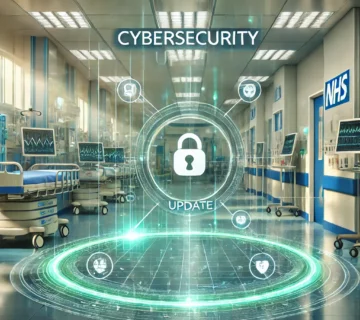Navigators of Uncertainty: The Critical Role of Risk Manager in Business
In the ever-changing business landscape, companies face a wide array of risks, from natural disasters and cyber threats to fluctuations in the market and evolving regulations. These risks can interrupt business operations, damage reputations, and result in significant financial setbacks. This is where risk manager come into play—they are the strategic guardians whose primary responsibility is to guide organizations through these uncertainties, helping them not just to survive, but to prosper.
What is a Risk Manager?
A risk manager is a pivotal figure in any organization, diligently identifying, assessing, and mitigating potential threats to its assets, earnings, and overall health. Their role combines the skills of an analyst, strategist, and problem solver, and includes:
- Identifying risks: This entails a thorough examination of both internal and external factors such as operational hazards, financial vulnerabilities, technological threats, and compliance issues.
- Analyzing risks: Assessing the likelihood and potential impact of risks using both quantitative and qualitative approaches.
- Developing mitigation plans: Crafting strategies to lessen the likelihood or impact of risks through new processes, insurance, contingency planning, and employee training.
- Monitoring and controlling risks: Continually tracking risk levels, evaluating the effectiveness of mitigation strategies, and adjusting as necessary.
- Communicating and reporting: Clearly presenting risk-related information to stakeholders, executives, and board members to foster informed decision-making.
Why is Risk Management Important?
Effective risk management is crucial for the sustained success and longevity of any business. It offers multiple benefits, including:
- Protection of assets: Minimizes financial losses, property damage, and operational interruptions.
- Safeguarding reputation: Reduces the likelihood of scandals, regulatory fines, and negative publicity.
- Enhanced decision-making: Provides critical data for strategic planning, allowing for well-informed risk-taking.
- Operational efficiency: Identifies and improves internal processes, reducing costs and streamlining operations.
- Competitive advantage: Establishes a reputation for reliability, which attracts investors and strengthens stakeholder relationships.
Types of Risk Managers
Risk managers may specialize in various domains depending on their industry’s needs:
- Financial Risk Managers: Focus on market fluctuations, interest rates, and financial instability.
- Operational Risk Managers: Address risks from internal processes, supply chains, and business disruptions.
- Strategic Risk Managers: Consider risks to organizational goals, reputation, and market shifts.
- Enterprise Risk Managers (ERM): Adopt a holistic view, integrating all organizational risks into a unified strategy.
- Cybersecurity Risk Managers: Concentrate on digital threats and information security.
- Environmental Risk Managers: Tackle risks related to environmental sustainability and compliance.
Key Skills of a Successful Risk Manager
- Analytical mindset: Essential for interpreting complex data and translating it into actionable insights.
- Problem-solving: Ability to devise effective solutions to a range of challenges.
- Communication and collaboration: Crucial for cross-departmental cooperation and risk awareness promotion.
- Project management: Organizes and executes risk mitigation strategies effectively.
- Industry knowledge: Deep understanding of relevant regulations and threats.
How Technijian Supports Risk Managers
Cybersecurity Risk Mitigation: Technijian plays a vital role in preventing costly data breaches and cyberattacks with services including firewall management, vulnerability assessments, incident response, and security training.
Operational Risk Management: Technijian’s expertise helps minimize operational risks through robust BCDR plans, data backups, and cloud solutions.
Compliance Risk Management: Assists in meeting industry regulations and data privacy standards, ensuring systems comply with laws like GDPR and HIPAA.
Strategic Risk Management: Supports risk assessments of IT infrastructures and keeps abreast of emerging technologies, aiding strategic decision-making.
Why Choose Technijian as Your Risk Management Partner
- Specialized Expertise: Profound knowledge of IT security threats and solutions.
- Proactive Approach: Focuses on identifying and preempting vulnerabilities.
- Customized Solutions: Tailors security strategies to fit your organization’s risk profile.
- 24/7 Support: Ensures ongoing system monitoring and maintenance.
By partnering with Technijian, organizations can fortify their defenses, effectively manage a broad spectrum of risks, and maintain the resilience crucial for long-term success.



